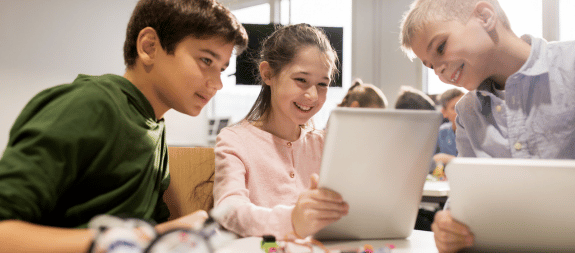In our rapidly advancing digital world, programming has become a fundamental skill that can benefit individuals of all ages. However, introducing programming to children at a young age can be particularly transformative. In this blog post, we will explore the myriad reasons why kids should learn programming, covering its educational, cognitive, and social benefits.
1. Fosters Problem-Solving Skills
One of the primary reasons for teaching kids programming is its ability to enhance problem-solving skills. When children learn to code, they are essentially learning to break down complex problems into smaller, manageable tasks. This skill is crucial not only in programming but in all aspects of life.
For example, when tasked with creating a simple game, a child must first conceptualize the game, then determine the rules, and finally implement those rules in code. This process teaches them how to approach problems logically and systematically, making it easier to tackle challenges in school and beyond.
2. Encourages Creativity
Contrary to the misconception that programming is purely about logic and math, it is also a highly creative endeavor. Coding allows children to express their creativity through the development of games, websites, and apps.
Kids can design characters, create storylines, and build worlds, all while learning how to bring their ideas to life. This creative aspect of programming not only keeps them engaged but also fosters a love for technology and innovation.
3. Prepares for Future Careers
In today’s job market, programming skills are in high demand across various industries. By learning programming at a young age, children can develop a skill set that will prepare them for future careers in technology, engineering, and beyond.
Familiarity with programming languages like Python, Java, or Scratch can give kids a significant advantage when they enter the workforce. Even if they do not pursue a career in technology, the skills learned through programming can be applied to other fields, such as science, mathematics, and even the arts.
4. Promotes Logical Thinking
Programming teaches children to think logically. Each programming language has its own set of rules and structures, and understanding these is crucial for writing effective code.
As children learn to code, they must learn to identify patterns, create algorithms, and understand the flow of information. This logical thinking process is valuable not only in programming but also in daily decision-making, allowing children to approach situations with a rational mindset.
5. Enhances Math Skills
Contrary to popular belief, learning programming can significantly enhance a child’s math skills. Programming often requires understanding mathematical concepts such as sequences, loops, and functions.
As children write code, they apply mathematical principles in practical ways, making these concepts more relatable and easier to understand. This application of math in a real-world context can spark a greater interest in the subject and help improve their overall performance in school.
6. Builds Resilience and Persistence
Programming can be challenging, often requiring multiple attempts to get things right. This trial-and-error process teaches children resilience and persistence, as they learn to troubleshoot errors and debug their code.
Encounters with frustration are common, but overcoming these obstacles fosters a growth mindset, encouraging children to view challenges as opportunities to learn and improve. This resilience will serve them well throughout their lives, both in their personal and professional pursuits.
7. Encourages Collaboration and Communication
In many programming environments, collaboration is essential. Children often work together on coding projects, which encourages teamwork and enhances communication skills.
Through group projects, kids learn how to share ideas, listen to others, and constructively critique each other’s work. These interpersonal skills are vital for success in any career and can help children build meaningful relationships.
8. Introduces a New Language
Programming is often referred to as a new language. By learning to code, children develop fluency in a language that is increasingly relevant in our technology-driven world.
Understanding programming languages broadens their communication skills and allows them to express themselves in a unique way. Moreover, just as learning a foreign language can open doors to new cultures, learning programming can open doors to new technologies and innovations.
9. Inspires Future Innovators
Teaching children programming inspires them to become future innovators. By learning how to create software, websites, or games, children can develop solutions to real-world problems.
This empowerment can lead to a generation of thinkers and creators who are equipped to tackle challenges such as climate change, healthcare, education, and more. Encouraging kids to harness their creativity through programming will shape the innovators of tomorrow.
Conclusion
In conclusion, learning programming at a young age is an invaluable experience that equips children with essential skills for the future. From fostering problem-solving abilities and enhancing creativity to preparing them for careers in technology, the benefits of coding are vast and far-reaching.
As parents and educators, it’s crucial to embrace the idea of teaching children programming. By investing in their digital literacy today, we are paving the way for a brighter, more innovative tomorrow. If you’re interested in getting your child started on this journey, consider enrolling them in beginner coding classes or workshops designed to nurture their coding skills in a fun and engaging environment.


